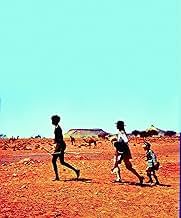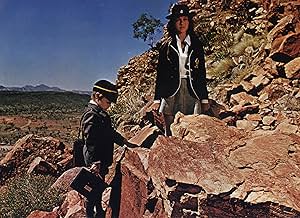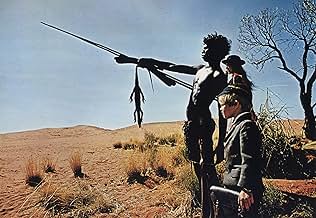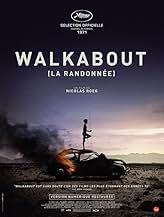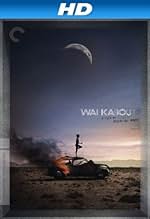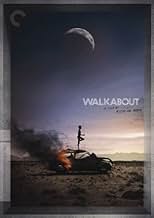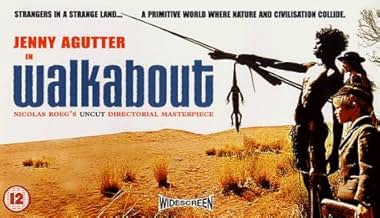Due fratelli cresciuti in città sono bloccati nell'entroterra australiano, dove imparano a sopravvivere con l'aiuto di un ragazzo aborigeno durante la così detta passeggiata, una separazione... Leggi tuttoDue fratelli cresciuti in città sono bloccati nell'entroterra australiano, dove imparano a sopravvivere con l'aiuto di un ragazzo aborigeno durante la così detta passeggiata, una separazione rituale dalla sua tribù.Due fratelli cresciuti in città sono bloccati nell'entroterra australiano, dove imparano a sopravvivere con l'aiuto di un ragazzo aborigeno durante la così detta passeggiata, una separazione rituale dalla sua tribù.
- Regia
- Sceneggiatura
- Star
- Premi
- 1 vittoria e 1 candidatura in totale
- Black Boy
- (as David Gumpilil)
- Man
- (as Robert McDara)
- No Hoper
- (as Pete Carver)
- German Scientist
- (as Noelene Brown)
- Radio Announcer
- (voce)
- (non citato nei titoli originali)
Recensioni in evidenza
The film is about nature, and man's relationship with it. If a civilised person were left out in the desert, then they would soon die. But, as this film shows, there are people and creatures living out there quite happily.
The film has been criticised for having a weak beginning and a weak end. But where does the story of this film start? And where and when would you end it? Yes you can end it when the two children get back to civilisation. But does the story end there? No. Because of their experiences, things are never going to be the same again. And for them, the story has not finished, it is only just beginning.
I have seen this film several times and I notice something different every time I see it.
Lo sapevi?
- QuizLuc Roeg was actually sun-burnt in the scene where the aboriginal boy treats his back by rubbing him with fat from a wild boar. Director Nicolas Roeg thought it would make a good scene for the film so he picked up the camera and shot it.
- BlooperThe credits name the actor playing "Black Boy" as David Gumpilil. It should be David Gulpilil.
- Citazioni
Narrator: [last lines - from "Poem XL" by A.E. Housman's "A Shropshire Lad"] Into my heart an air that kills, From yon far country blows: What are those blue remembered hills, What spires, what farms are those? That is the land of lost content, I see it shining plain, The happy highways where I went, And cannot come again.
- Curiosità sui creditiAfter the credits, there is a flash of white light on the screen and as it becomes a black screen, radio tuning is heard while the words "rien ne va plus" are shown.
- Versioni alternativeA director's cut of this movie was released in 1997 with 5 additional minutes. This cut is identical to the original British release version (100 minutes): the film was shortened by five minutes for its original American release.
- ConnessioniEdited into Terror Nullius (2018)
- Colonne sonoreElectronic Dance
Written and performed by Billy Mitchell
I più visti
- How long is Walkabout?Powered by Alexa
- Why does the father try to kill his two children?
Dettagli
- Data di uscita
- Paesi di origine
- Lingue
- Celebre anche come
- Encuentro de dos mundos
- Luoghi delle riprese
- Aziende produttrici
- Vedi altri crediti dell’azienda su IMDbPro
Botteghino
- Budget
- 1.000.000 A$ (previsto)
- Lordo in tutto il mondo
- 1888 USD
Contribuisci a questa pagina



